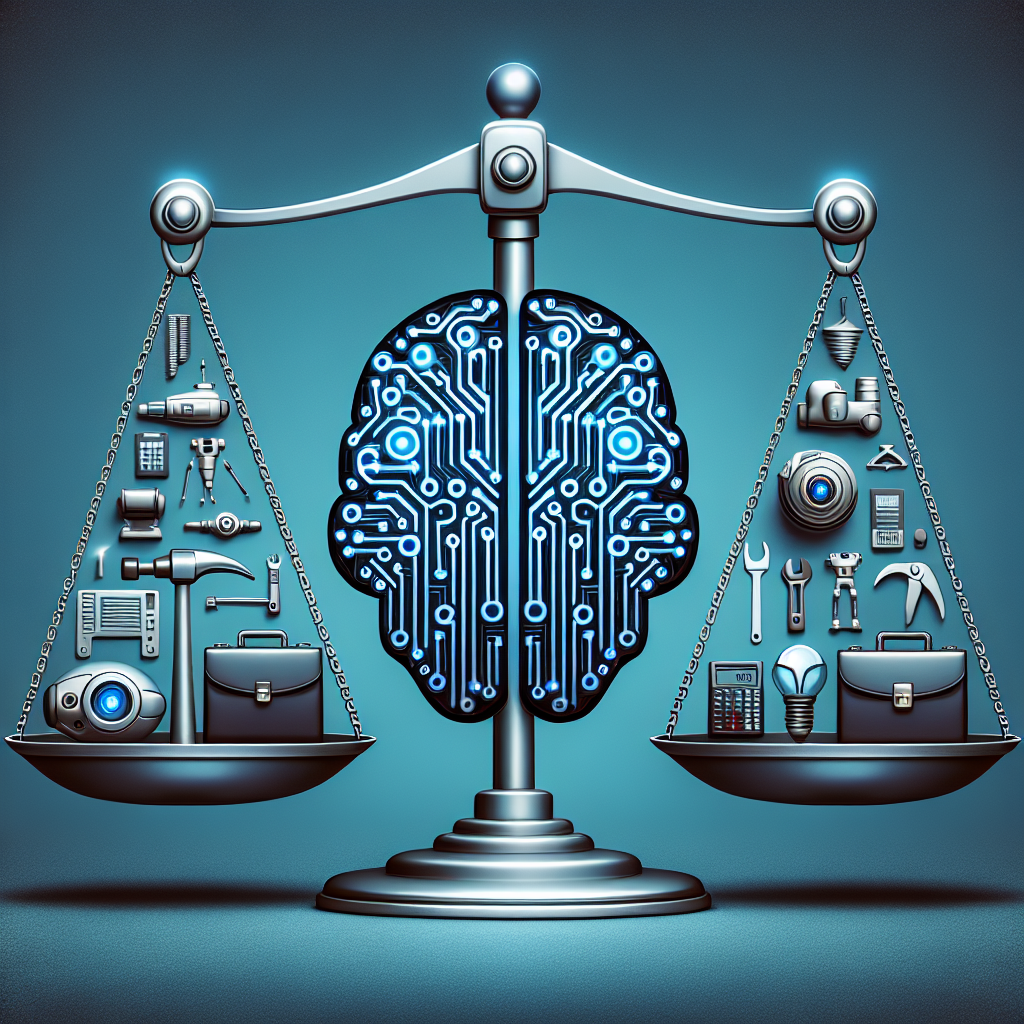The Impact of AI Software on Job Market
Artificial Intelligence (AI) has been a hot topic in recent years, with many industries exploring its potential to revolutionize processes and improve efficiency. However, one major concern that has emerged is the impact of AI software on the job market. Will AI technology lead to widespread job loss, or will it create new opportunities for workers? In this article, we will explore the effects of AI software on the job market and discuss how workers can adapt to this changing landscape.
Effects of AI Software on the Job Market
AI software is already being used in a variety of industries, from healthcare and finance to retail and manufacturing. The main goal of AI technology is to automate repetitive tasks and processes, allowing companies to operate more efficiently and reduce costs. While this can lead to increased productivity and profits for businesses, it can also have a significant impact on the job market.
One of the main concerns surrounding AI software is the potential for job loss. As AI technology becomes more advanced, it is capable of performing tasks that were previously only done by humans. This can lead to the automation of jobs in sectors such as manufacturing, customer service, and transportation. For example, self-driving cars could replace truck drivers, and chatbots could replace customer service representatives.
In addition to job loss, AI software can also lead to changes in the types of jobs available. As certain tasks become automated, workers may need to develop new skills in order to remain competitive in the job market. This could lead to a shift towards jobs that require more creativity, critical thinking, and problem-solving abilities, as these are areas where humans still have an advantage over AI technology.
Despite the potential for job loss and changes in job roles, AI software also has the potential to create new opportunities for workers. For example, AI technology can help workers become more efficient in their jobs by providing them with tools and resources to improve their performance. This can lead to increased job satisfaction and higher wages for workers who are able to leverage AI technology to their advantage.
How Workers Can Adapt to the Changing Job Market
As AI software continues to advance and become more prevalent in the workplace, it is important for workers to adapt to these changes in order to remain competitive in the job market. Here are some strategies that workers can use to adapt to the changing job market:
1. Develop new skills: In order to remain competitive in the job market, workers may need to develop new skills that are in demand in industries that are not easily automated by AI technology. This could include skills such as data analysis, programming, and project management.
2. Embrace lifelong learning: With the rapid pace of technological change, it is important for workers to embrace lifelong learning in order to stay up-to-date with the latest trends and technologies. This could involve taking online courses, attending workshops, or pursuing certifications in relevant fields.
3. Be adaptable: The job market is constantly evolving, and workers need to be adaptable in order to navigate these changes. This could involve being open to new job opportunities, relocating for work, or taking on freelance or contract work.
4. Collaborate with AI technology: Rather than seeing AI technology as a threat, workers can collaborate with AI software to improve their performance and productivity. By leveraging AI tools and resources, workers can enhance their skills and become more competitive in the job market.
Frequently Asked Questions
1. Will AI software lead to widespread job loss?
While AI software has the potential to automate certain tasks and processes, it is unlikely to lead to widespread job loss. Instead, AI technology is more likely to lead to changes in job roles and the types of skills that are in demand in the job market.
2. How can workers prepare for the impact of AI software on the job market?
Workers can prepare for the impact of AI software on the job market by developing new skills, embracing lifelong learning, being adaptable, and collaborating with AI technology to improve their performance.
3. What industries are most likely to be affected by AI software?
Industries that rely heavily on repetitive tasks and processes are most likely to be affected by AI software, such as manufacturing, customer service, and transportation. However, AI technology is also being used in a variety of other industries, including healthcare, finance, and retail.
4. Will AI software create new job opportunities?
Yes, AI software has the potential to create new job opportunities for workers. While certain tasks may become automated, workers can leverage AI technology to improve their performance and productivity, leading to increased job satisfaction and higher wages.
In conclusion, AI software has the potential to have a significant impact on the job market, leading to changes in job roles and the types of skills that are in demand. While there may be concerns about job loss, workers can adapt to these changes by developing new skills, embracing lifelong learning, being adaptable, and collaborating with AI technology. By preparing for the impact of AI software on the job market, workers can remain competitive and thrive in this changing landscape.

